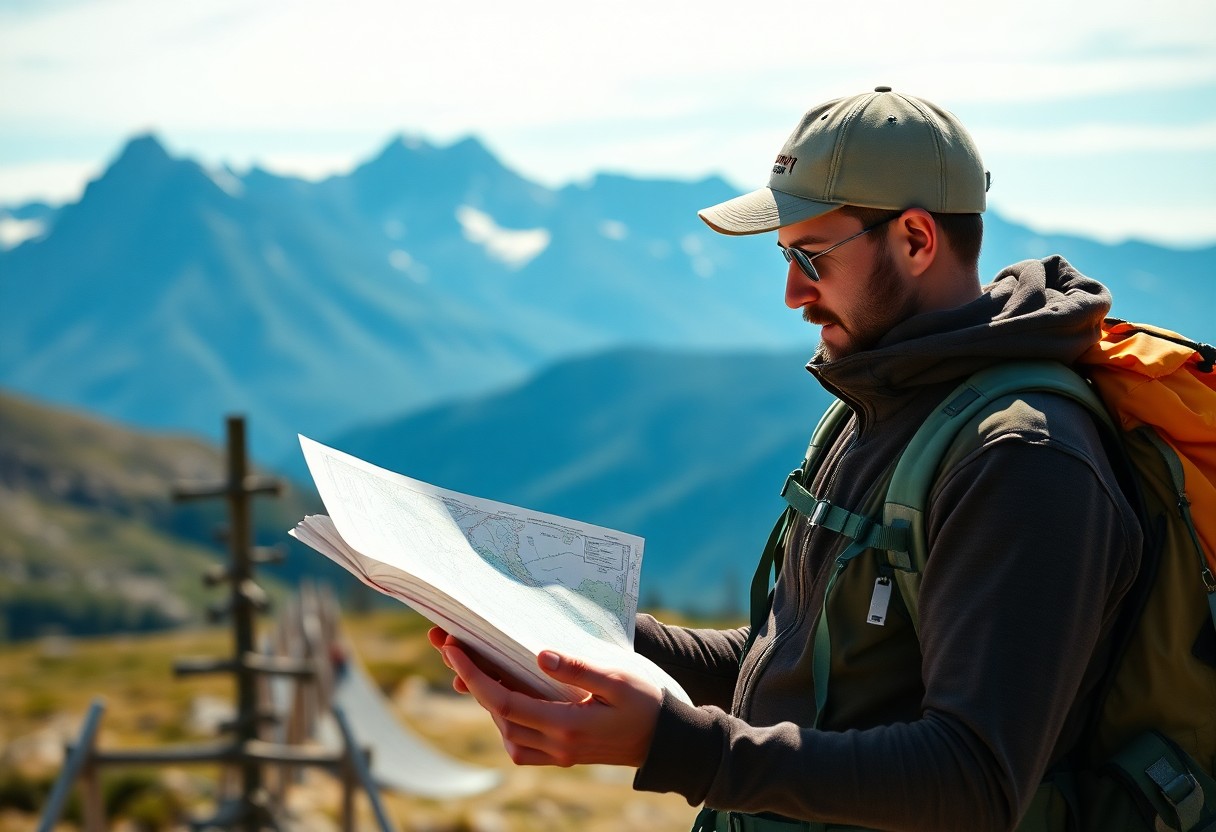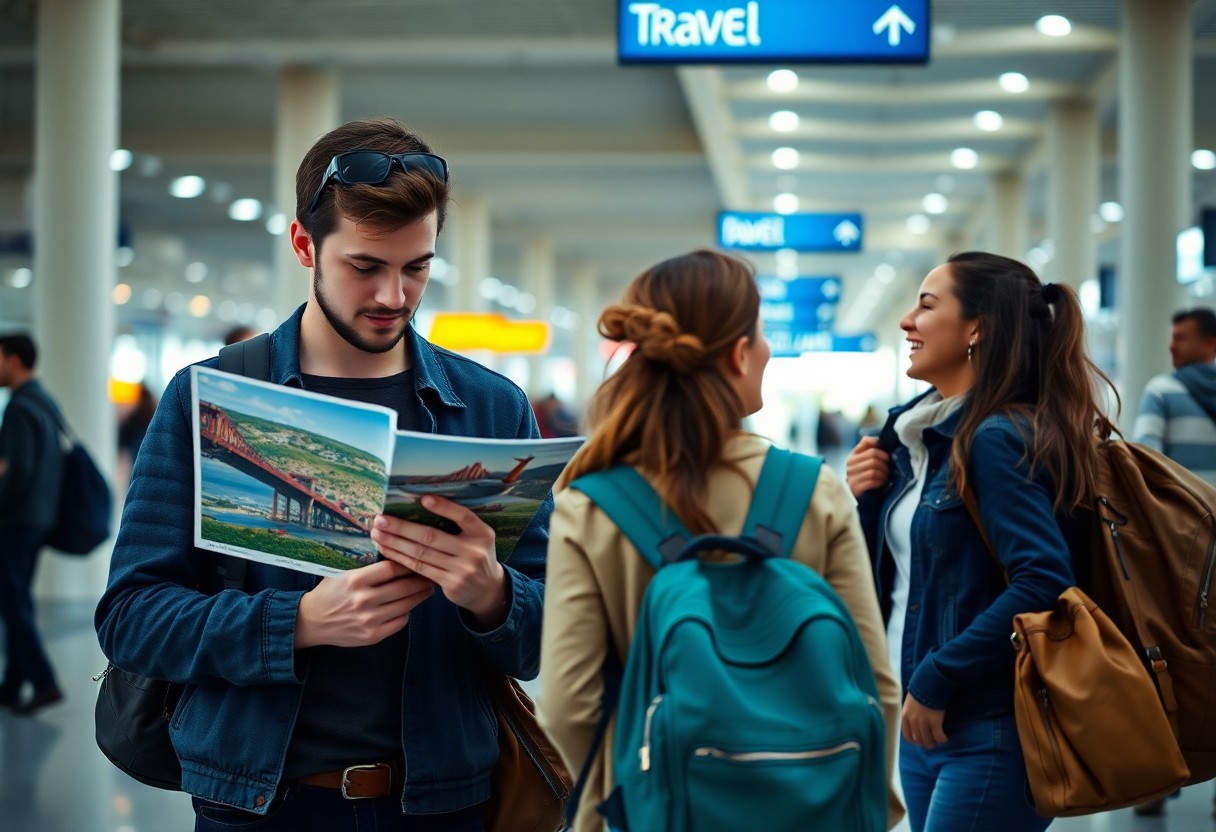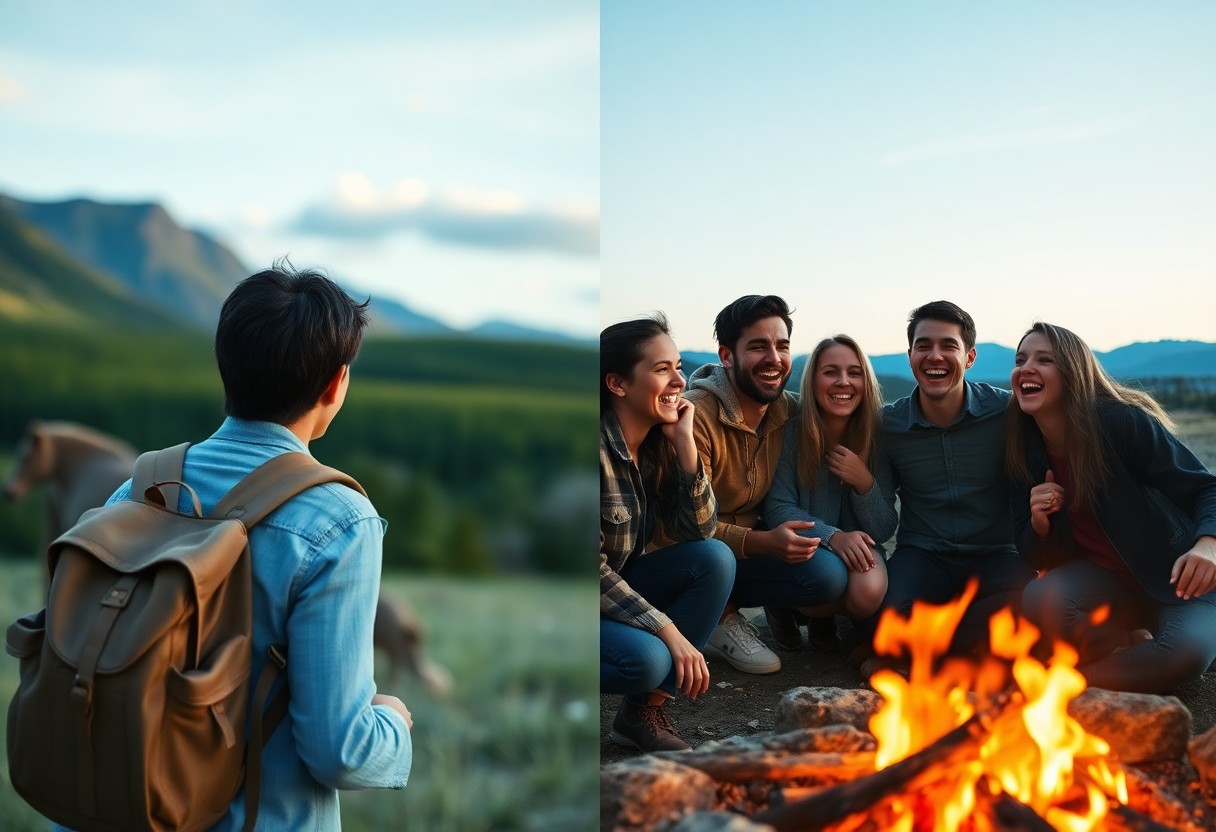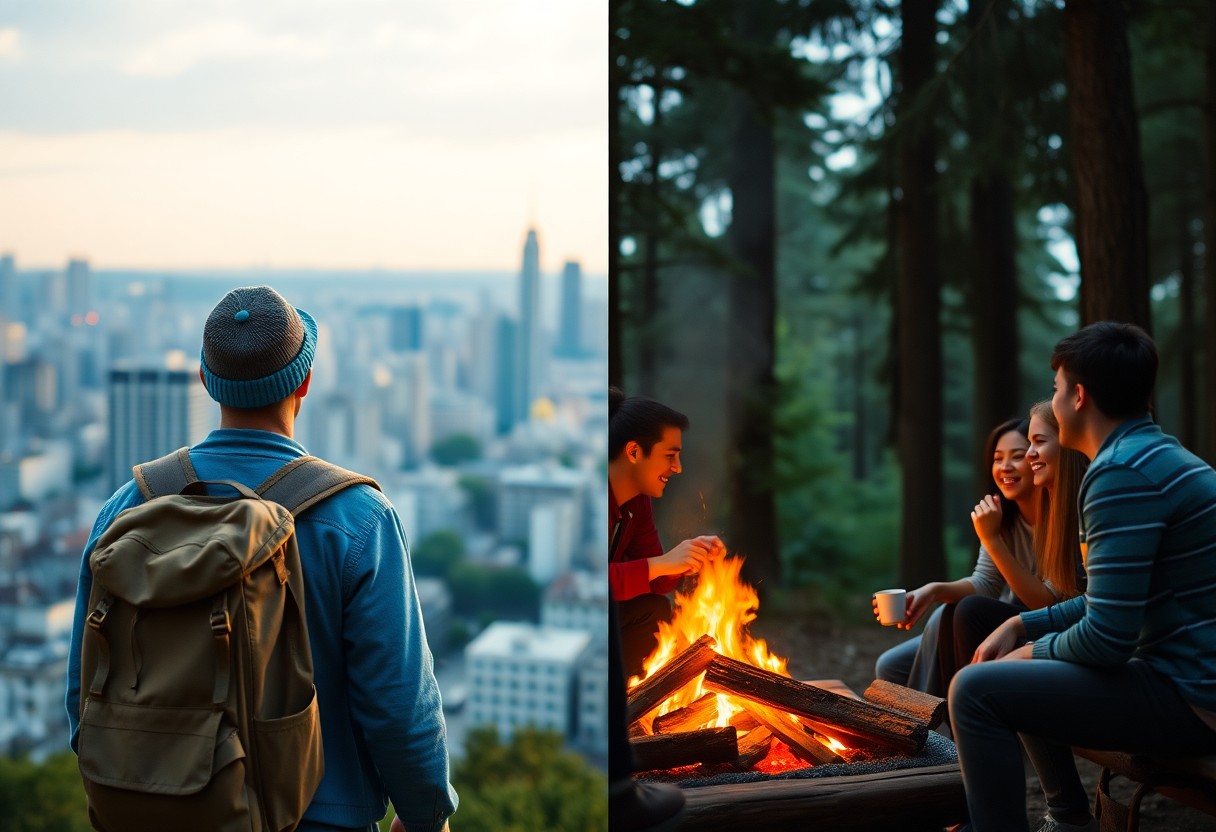
Over the course of planning a trip, one of the most important decisions you make is whether to travel solo or with a group. Choosing your travel companions—or opting to go alone—shapes your experiences, influences your itinerary, and impacts your overall enjoyment. By deciding early on, you can tailor your trip to match your preferences, ensuring smoother logistics and a more fulfilling adventure. Understanding the benefits and challenges of each option helps you create the travel experience that aligns best with your personality and goals.
Key Takeaways:
- Determine your travel style and preferences early to decide if solo or group travel suits you best.
- Consider the benefits of solo travel, such as flexibility and personal growth, against the social and shared experiences of group travel.
- Evaluate your destination and activities to see if they are better enjoyed alone or with others.
- Communicate expectations clearly with potential travel companions to avoid misunderstandings and ensure compatibility.
- Be open to adjusting plans if your initial choice doesn’t meet your travel goals or comfort level.
The Freedom Factor: Exploring Solo Travel’s Unique Advantages
Traveling alone grants you unparalleled control over your itinerary, pace, and experiences. Without needing to accommodate differing preferences or schedules, you can spontaneously explore hidden gems, linger longer at favorite spots, or shift plans on a whim. This flexibility allows for deeper immersion into local cultures and personal reflection, fostering a travel experience tailored entirely to your interests and energy levels.
Unleashing Personal Freedom: Where and When You Want
Solo travel lets you wake up and decide your day’s direction without negotiation. Whether chasing sunrise at a secluded beach in Costa Rica or exploring into midnight street food tours in Bangkok, the choice is solely yours. You set the pace, from early morning hikes to late-night cultural events, enabling you to indulge fully in moments as they inspire you.
The Self-Discovery Journey: Growing Through Solo Adventures
Embracing solo travel often sparks profound self-awareness and resilience. Navigating unfamiliar environments alone challenges you to develop problem-solving skills, boost confidence, and cultivate independence. This journey outside your comfort zone frequently results in personal growth that lingers long after your return home.
Extending beyond confidence-building, solo adventures expose you to diverse perspectives and unexpected situations, prompting introspection and adaptability. For example, travelers who venture solo into culturally immersive destinations often report enhanced emotional intelligence and greater empathy. These experiences can redefine personal boundaries and encourage a more open, curious approach to both travel and life.
The Power of Connection: Advantages of Group Travel
Traveling with a group opens doors to shared memories and collective energy that can elevate your experience. You gain diverse perspectives, access to varied skills, and a built-in support network that enhances both fun and practicality. Group dynamics often inspire spontaneous adventures you might not venture on alone, deepening bonds and creating stories told for years. With others around, challenges become easier to manage, fostering a sense of community that turns a trip into a shared journey.
Shared Experiences: The Joy of Traveling Together
Experiencing new places through the eyes of friends adds layers of joy and connection to your journey. From laughing over inside jokes while exploring markets to reflecting on breathtaking sunsets, these collective moments transform ordinary travel into treasured memories. You’ll find that spontaneous group decisions, like trying street food or joining locals in festivities, often lead to the most unforgettable highlights. Sharing discoveries and challenges strengthens relationships, creating a travel narrative woven from everyone’s contributions.
Safety in Numbers: Enhanced Security and Support
Traveling as part of a group provides a safety net that alleviates many common concerns. You can distribute responsibilities like navigation and language barriers, increasing your confidence in unfamiliar environments. Should unexpected situations arise—missed connections or health issues—the presence of others ensures quicker problem-solving and emotional support. With more eyes and ears, you’re better positioned to avoid risky areas or scams, creating a buffer that allows you to explore more freely and securely.
Delving deeper into safety, research indicates that tourists in groups face fewer incidents of petty crime, with group sizes of three or more reducing risk significantly. Group members can watch for one another during late-night outings, share important contact information, and coordinate responses during emergencies, providing both physical protection and peace of mind. This collective approach to security lets you focus on the joy of discovery, trusting your squad to have your back no matter the locale.
Financial Benefits: Splitting Costs for Greater Experiences
Pooling resources with travel companions unlocks opportunities that might be cost-prohibitive solo. Shared accommodations, group transportation deals, and bulk dining expenses can significantly lower individual budgets. This financial flexibility allows you to invest in unique experiences like guided excursions, special events, or higher-quality meals, enhancing your trip’s overall value. Collaborating on costs often leads to smarter spending, enabling a richer itinerary without the stress of stretching your funds too thin.
Taking a closer look, booking group tours or rentals often comes with discounts unavailable to solo travelers. For instance, renting a villa for four can cost less per person than a single hotel room, while group rates for activities like scuba diving or city tours can reduce expenses by up to 40%. With more financial leverage, you can add luxuries such as spa days or exclusive nightlife experiences, transforming your travel from basic sightseeing into indulgent exploration supported by smart budgeting.
Analyzing Your Travel Style: How to Assess Your Preferences
Understanding your travel style begins with reflecting on past trips and what made them enjoyable or challenging. If spontaneous decisions and new experiences energize you, solo travel might fit your vibe. Conversely, if sharing moments and dividing logistics reduce stress, group travel could be more satisfying. Resources like What To Consider Before Solo-Traveling | by Kaitlyn Bricker provide thoughtful perspectives to help frame your assessment before committing to a travel mode.
Key Questions to Reflect On: Solo vs. Group Considerations
Ask yourself how you handle decision-making under pressure, your need for personal space versus company, and your comfort level in unfamiliar environments. Do you thrive on independent exploration or draw energy from social interactions? Also, consider your budget flexibility and risk tolerance. These factors help clarify whether a solo journey suits your mindset or if traveling with a squad aligns better with your expectations and personality.
Identifying Your Travel Values: Adventure, Comfort, or Socialization?
Your top priorities—be it seeking thrills, enjoying luxurious downtime, or connecting with others—shape the type of travel experience you’ll find most fulfilling. Adventure-driven travelers might prefer the freedom of solo exploits to chase adrenaline, while comfort-focused individuals may benefit from the support of travel companions. If socializing ranks high, group trips or travel with friends provide built-in opportunities for shared experiences.
Delving deeper into your travel values reveals how they influence your choices. Adventure seekers often embrace unpredictability, opting for solo travel to pursue unique activities like hiking remote trails or diving in offbeat locales without compromise. Those valuing comfort might prioritize well-planned itineraries, reliable accommodations, and amenities better coordinated with companions. For social butterflies, traveling with others cultivates a continual sense of connection and shared memories, fueling the trip’s enjoyment. Understanding where your preferences lie enables you to tailor your journey to what truly resonates with you.
Choose Your Vibe: Tailoring Travel Companions to Your Needs
Your travel experience transforms significantly depending on who you bring along. Some people thrive in lively groups that match their energy, while others need chill companions who respect solo moments. Aligning your travel partners with your vibe enhances enjoyment—whether that means a hiking buddy who shares your pace or a friend open to spontaneous detours. Assess your own preferences, activity levels, and social habits, then choose companions whose travel styles complement yours for smoother adventures and fewer conflicts.
Finding Compatible Travel Buddies: Personalities that Mesh
Compatibility often hinges on shared attitudes toward planning, spontaneity, and downtime. Extroverted travelers might enjoy boisterous groups, but pairing an extrovert with a reserved introvert can cause tension. An outgoing wanderer who wants nightlife bustling every night might clash with a companion craving early nights. Look for travel buddies whose personalities align with your rhythm and energy, or who at least respect differing preferences. Such alignment minimizes friction and boosts the chances of creating enriching memories together.
Setting Expectations: Understanding Group Dynamics
Clarifying plans and personal boundaries upfront prevents misunderstandings on the road. Discuss budget limits, activity preferences, and decision-making styles before departure so everyone feels heard. Agreeing on how to handle conflicts or downtime can lessen stress once you’re sharing tight spaces. For example, deciding in advance whether group meals are mandatory or optional gives you space to recharge when needed without guilt. Understanding these dynamics helps maintain harmony throughout your trip.
Delving deeper into group dynamics reveals that flexibility balances with clear communication. Studies show that travel groups with predefined roles—like planner, navigator, or negotiator—handle stress more effectively. Assign responsibilities based on strengths to streamline logistics and reduce disagreements. Explore ways to include solo time into the group’s schedule, accommodating personal recharging needs while maintaining group cohesion. This approach turns diverse personalities into a complementary team rather than a source of friction.
Summing up
Now that you’ve weighed the benefits of traveling solo versus with a squad, it’s important to decide early on who you’ll journey with, or if you’ll begin alone. Choosing your travel companions ahead of time helps shape your experience, ensuring your plans align with your preferences for adventure, relaxation, or socializing. By making this choice thoughtfully, you set the stage for a trip that suits your style, allowing you to make the most of every moment and create memories that resonate with your unique travel goals.
FAQ
Q: What are the main benefits of traveling solo compared to traveling with a squad?
A: Traveling solo allows for complete freedom in making decisions about destinations, activities, and schedules without needing to compromise. It offers opportunities for self-discovery, deeper personal reflection, and easier flexibility when plans change. On the other hand, traveling with a squad provides companionship, shared experiences, and the chance to build stronger bonds with friends. Group travel can also be more cost-effective due to shared expenses.
Q: How do I decide early on whether to travel alone or with a group?
A: Consider your travel goals, personality, and past experiences with group dynamics. If you prioritize independence, personal growth, or have a specific itinerary, solo travel may suit you. If you enjoy social interaction, value shared memories, and prefer company for safety or emotional support, group travel may be better. Assessing your comfort with flexibility and the type of experience you want can help guide your decision.
Q: What challenges can arise when traveling with a squad, and how can they be managed?
A: Common challenges include differing interests, pace mismatches, budgeting conflicts, and communication breakdowns. To manage these, establish clear expectations and open communication before and during the trip. Planning some solo time or smaller group activities within the larger trip can help accommodate varied preferences. Agreeing on a budget range and creating a loose itinerary that allows flexibility can also ease potential tensions.
Q: Are there specific types of trips better suited for solo travelers versus groups?
A: Yes. Solo travel often works well for trips focused on personal growth, cultural immersion, or destinations where meeting locals is easy. It’s ideal for travelers seeking flexibility or trying new experiences at their own pace. Group travel tends to be better for adventure tours, festivals, road trips, or family vacations where shared experiences and safety in numbers add value. Choosing the right travel style helps enhance enjoyment and fulfillment.
Q: What considerations should be made regarding safety when choosing to travel solo or with a group?
A: Solo travelers should research destinations thoroughly, inform trusted contacts about their plans, and stay aware of surroundings. Carrying emergency contacts and keeping digital copies of important documents is advisable. Groups can share responsibility for safety by staying together, looking out for one another, and splitting roles such as navigation and communication. Regardless of the choice, maintaining vigilance, respecting local customs, and having a contingency plan are important elements of safe travel.





